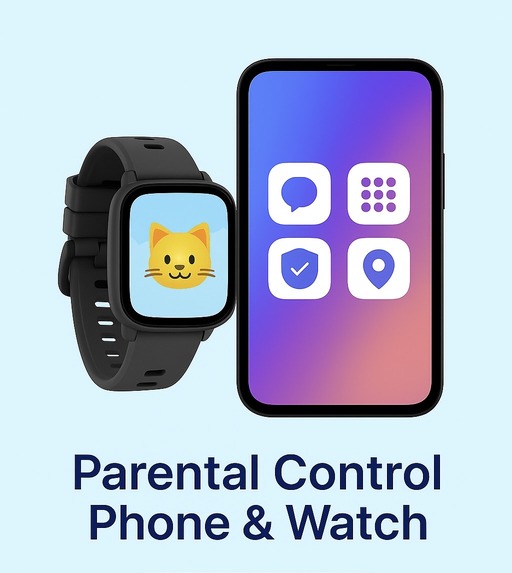
✔ Detects cyberbullying, predators, & threats
✔ Tracks real-time GPS location
✔ Sends instant alerts for risky activity
✔ Blocks explicit, violent, or unsafe websites
✔ Sets screen-time limits and bedtime schedules
✔ Lets parents approve contacts & apps
✔ Keeps data private & secure
When Your Child’s Smartphone Becomes a Stressor: A Parent’s Rescue Guide
As parents, we often gift our children smartphones to stay connected and protected. But what happens when those devices become a daily source of tension, secrets, and anxiety? In this story-driven post, we’ll walk through one family’s problem, solution, and lessons learned—so you can avoid the same pitfalls.
The Parent’s Story: Anna and Her 13-Year-Old Son
Anna (name changed) gave her son, Ethan, a smartphone when he entered middle school. Initially, she monitored it via app controls and detector tools. Over time, however, Ethan found ways to bypass filters, hide apps, and sneak extra screen time. Anna discovered late-night texting, unapproved social media, and a growing distance between mother and son.
It triggered guilt, fear, and frustration. Was she being too strict? Was she violating his privacy? Was she failing to protect him?
Then They Tried a New Strategy
Rather than doubling down on control, Anna shifted to a mixture of open communication and clear structure:
- Heart-to-heart conversation: She sat with Ethan and said she understood peer pressure, FOMO, and wanting privacy—but explained her worries about safety, screen addiction, and life balance.
- Co-created digital contract: Together, they set rules—no phones after 9 pm, quiet-mode in class, explanatory reviews every Sunday.
- Smart parental-tech tools: She installed a kid-safe phone with built-in monitoring and weekly summary reports (rather than minute-by-minute spying), which they reviewed together.
- Trust incentives: If Ethan followed the rules for a month, he’d earn extra free time or a reward.
Results and Reflection
Within weeks, Anna saw fewer secretive behaviors, more open conversations, and better sleep for both of them. Her son appreciated the clarity and trust rather than ambush-style supervision.
Anna reflects: “I realized I wasn’t just protecting him — I was training him for responsible self-management.” She now treats the smartphone as a shared responsibility rather than a parental war zone.
Key Lessons for You
- Empathy first: Recognize that kids want autonomy and privacy
- Involve your child: When rules feel jointly chosen, compliance rises
- Prefer oversight over surveillance: Summary reports, alerts, and conversation beats constant spying
- Use positive reinforcement: Trust and rewards can motivate more than fear
- Be consistent but flexible: Adjust rules as your child matures
Tips to Implement in Your Family
- Begin with a neutral, no-blame talk
- Draft a digital agreement: hours, apps, review times
- Choose parental-control tools that balance safety + privacy
- Review rules monthly, not quarterly
- Praise good behavior—for example: “Thanks for telling me you needed extra screen time this week”
Parenting in the digital age isn’t about winning control battles—it’s about guiding, trusting, and protecting. This story shows how moving from secret policing to mindful partnership can transform your family's smartphone tension into mutual respect and safer habits.